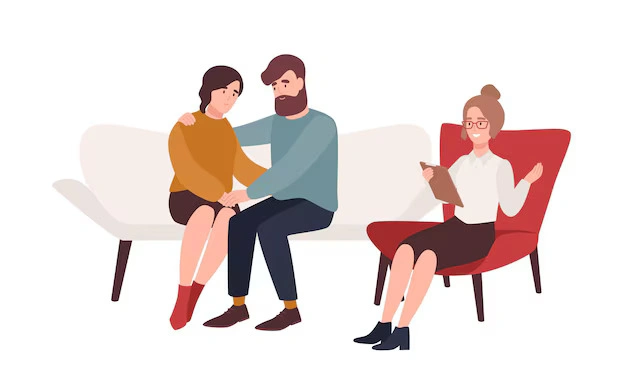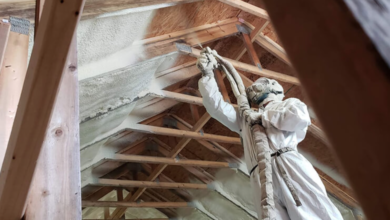

Couples therapy, also known as marriage counseling or relationship counseling, is a form of psychotherapy that focuses on resolving conflicts and improving communication and understanding between partners. It provides a safe and supportive environment for couples to address issues, strengthen their bond, and work towards a healthier relationship. Therapists help couples identify and address underlying issues, develop effective communication skills, and rebuild trust and intimacy.
What not to say in couples therapy?
In couples therapy, it’s important to avoid blaming or criticizing your partner, as this can escalate conflicts. Avoid dismissive language or invalidating your partner’s feelings. Refrain from interrupting or being defensive, as it hinders productive communication. Also, avoid withholding information or being dishonest, as trust is crucial in therapy. Instead, focus on expressing your own feelings and listening empathetically to your partner’s perspective.
Types of Couples Therapy?
Getting started with “Couples Counsellor” involves several steps. First, discuss the idea with your partner openly and honestly, emphasizing the desire to strengthen your relationship.
- Emotionally Focused Therapy (EFT): Focuses on emotional bonds and attachment patterns.
- Cognitive Behavioral Therapy (CBT): Targets negative thought patterns and behaviors.
- Gottman Method: Based on Dr. John Gottman’s research, emphasizes communication skills and conflict resolution.
- Imago Relationship Therapy: Explores childhood influences on adult relationships and communication styles.
- Narrative Therapy: Focuses on the stories couples tell about their relationship and identity.
- Solution-Focused Therapy: Emphasizes finding solutions rather than dwelling on problems.
- Integrative Therapy: Combines techniques from various approaches tailored to the couple’s needs.
- Behavioral Relationship counseling: Addresses specific behaviors and how they impact the relationship.
- Psychoanalytic Marriage counseling: Explores unconscious dynamics and past experiences.
- Transactional Analysis: Analyzes communication patterns and transactional dynamics.
- Family Systems Therapy: Examines how family dynamics influence the couple’s relationship.
- Brief Strategic Couples Therapy: Focused on finding practical solutions to relationship problems.
- Psychodynamic Couples Therapy: Explores unconscious conflicts and relational patterns.
- Internal Family Systems Therapy (IFS): Focuses on understanding and harmonizing internal parts of individuals within the relationship.
- Structural Therapy: Focuses on the structure of the relationship and the roles each partner plays.
- Attachment-Based Therapy: Explores attachment styles and how they impact relationship dynamics.
When facing conflicts or issues in your relationship, seeking professional guidance “Therapist near me” through couples therapy can be immensely beneficial. Begin by acknowledging the need for outside help and discussing it with your partner.
Ways Couples Therapy Can Improve Your Relationship?
Couples therapy can be a powerful tool to strengthen your relationship, even if things aren’t on the rocks.
- Enhanced Communication Skills: Couples learn effective communication techniques to express their needs and feelings.
- Conflict Resolution: Therapists guide couples in resolving conflicts peacefully and constructively.
- Increased Understanding: Couples gain a deeper understanding of each other’s perspectives and emotions.
- Rebuilding Trust: Therapy provides a safe space to address trust issues and rebuild trust between partners.
- Identifying Negative Patterns: Couples identify and break negative relationship patterns, fostering healthier interactions.
- Strengthened Intimacy: Therapy helps couples address intimacy issues and build a stronger emotional connection.
- Improved Problem-Solving Skills: Couples learn practical problem-solving skills to tackle challenges together.
- Balanced Power Dynamics: Therapy helps address imbalances in power dynamics within the relationship.
- Boundary Setting: Couples learn to set and respect boundaries, enhancing mutual respect and understanding.
- Managing External Stressors: Therapy equips couples with tools to manage external stressors that impact their relationship.
- Forgiveness and Healing: Couples work through past hurts and resentments, fostering forgiveness and healing.
- Renewed Commitment: Therapy helps couples reaffirm their commitment to each other and their relationship.
- Shared Goals and Values: Couples align their goals and values, promoting greater unity and harmony.
- Enhanced Problem-Solving Skills: Therapists teach effective problem-solving techniques for relationship challenges.
- Improved Coping Mechanisms: Couples learn healthier ways to cope with stress and adversity.
- Addressing Individual Needs: Therapy addresses individual needs within the relationship, promoting mutual support.
- Building Resilience: Couples develop resilience to navigate future challenges together.
- Cultivating Gratitude: Therapy encourages couples to express gratitude and appreciation for each other.
- Emotional Regulation: Couples learn techniques to regulate their emotions, reducing conflict and tension.
- Creating Rituals of Connection: Therapy helps establish meaningful rituals to strengthen the bond between partners.
- Rediscovering Fun and Playfulness: Couples reconnect by rediscovering the fun and playfulness in their relationship.
- Long-Term Relationship Maintenance: Therapy equips couples with tools for long-term relationship maintenance and growth.
In conclusion, couples therapy offers a valuable opportunity for partners to improve their relationship. Through effective communication, understanding, and guidance from a trained therapist, couples can address underlying issues, strengthen their bond, and build a healthier, more fulfilling partnership.









